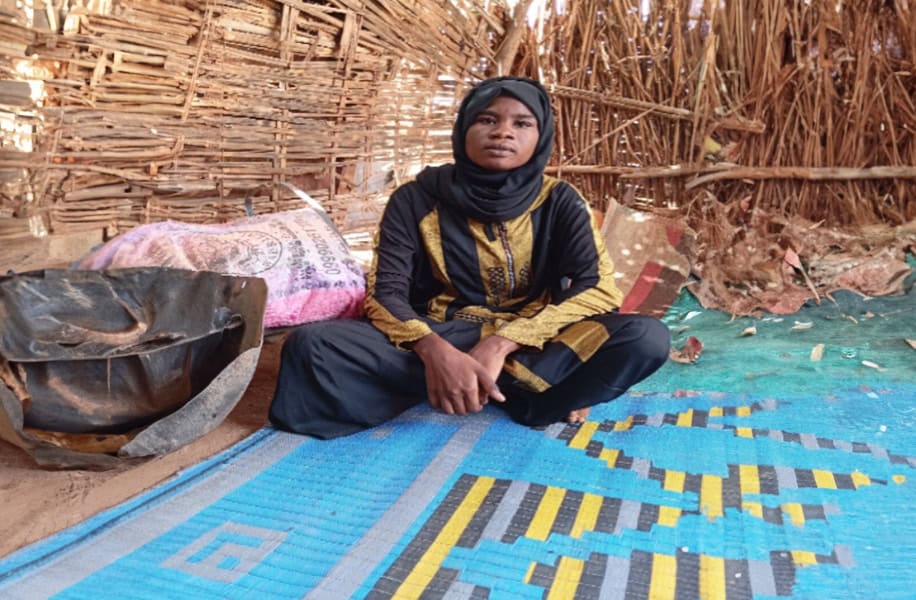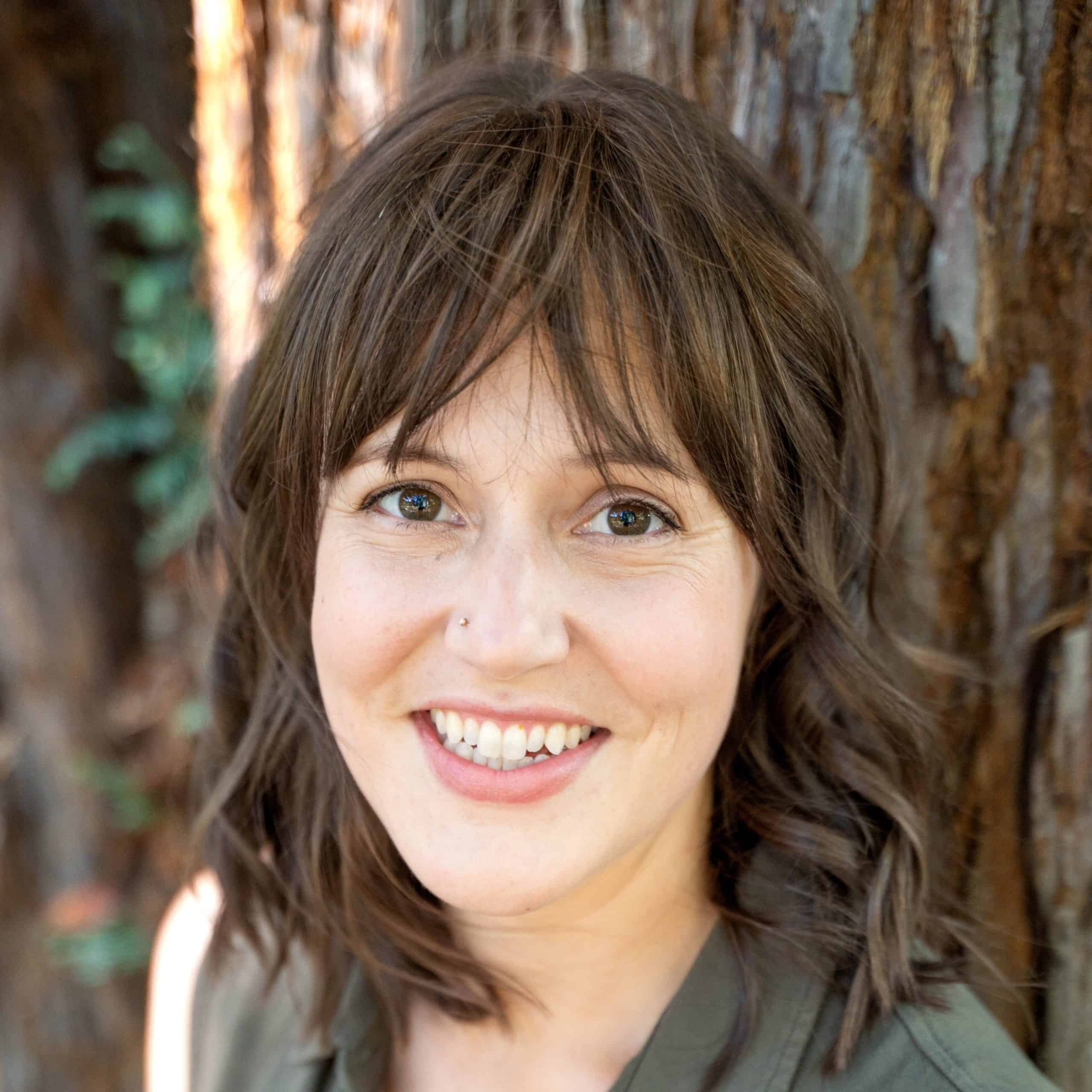War impacts every aspect of life — worsening risks to those already experiencing vulnerabilities. For Jawahir, war in Sudan became a burden she felt she was bearing alone.
“As a woman,” she shared, “I am expected to care for my parents, younger brothers and sisters.”
Despite these great responsibilities, the crisis in Sudan has made opportunities to earn an income nearly non-existent. Daily tasks like gathering food, water and firewood have also become more dangerous. And when these needs go unmet, hunger, thirst and uncertainty create conflicts in families.
At just 23 years of age, Jawahir found herself in a seemingly impossible situation with few places to turn for help.
Crisis in Sudan
Over the last 14 months, conflict has led to a dire humanitarian crisis in Jawahir’s home country. Mass displacement is widespread in the wake of violence that broke out in April 2023.
Sudan is currently home to one of the largest displacement crises in the world, with the U.N. estimating over 10 million people forcibly displaced at the beginning of 2024. Twenty five million people are in need of humanitarian aid, including 14 million children. Hunger has reached unprecedented levels, with 37% of the population, 17.7 million people, facing high levels of acute food insecurity.
The crisis in Sudan is urgent and immense — and has a disproportionate impact on girls and women like Jawahir.
Ensure protection for women, children and others at risk around the world.
The Impact on Women
The war in Sudan has put the safety of women and girls at great risk.
Jawahir explained, “Many women and girls face many challenges, from the risk that we may face when looking for food, water, firwood if we [have to] go far. Also, when no food is served [to our families], this can lead to fighting between couples.”

The U.N. reports that 53% of displaced persons in Sudan are women and girls and that more than 6.7 million people in Sudan are at risk of gender-based violence. They state that “intimate partner violence, sexual exploitation and abuse, and trafficking in persons are widespread and increasing.”
As women like Jawahir seek to meet the basic needs of their families in the midst of war, they are at risk of violence both inside and outside their homes.
Engaging the Crisis to Help Women in Sudan
At World Relief, we see Jawahir, and we’re taking action to ensure she and other women like her don’t walk through this crisis alone.
In partnership with USAID’s Bureau for Humanitarian Assistance, we’re working in her community to increase protections for women and girls. This includes training community members to identify and prevent gender-based violence, promoting gender equality and child protection and providing psychosocial support to those who have experienced gender-based violence.
“At a time where all people were in urgent need,” she shared, “we found World Relief.” Our staff helped Jawahir understand how to keep herself safe, while also equipping her to promote the safety of other women in her community.
After learning more about how she could play a role in protecting herself and others, Jawahir decided to become a member of her local protection committee and is spreading awareness about gender-based violence and protection.
“World Relief helped me understand that women can play an important role in contributing toward the protection of other people. I thought protection is only the role of men. I am happy that I have been given an opportunity to raise awareness and influence others to change the way they perceive women’s roles and to prevent gender-based violence … I am more confident now as a woman and feel safer. Also, I see changes in the community — before the conflict, most of the people were very aggressive, but after the awareness sessions, things have changed.” — Jawahir
Together with Jawahir and her community, we’re strengthening community-based protection networks that can endure in times of war and, we pray, in times of future peace.
So far, we have reached 45,300 people in Sudan with programming that increases the safety and protection of women and girls.
Join Us in Responding to the Crisis in Sudan
As the humanitarian crisis in Sudan continues to unfold, more and more people like Jawahir will be in need of urgent help. But in her story, we see the power of walking alongside local change-makers like her.
By equipping Jawahir with information and resources to help protect herself, she is now passionately working to protect others in her community. And she’s already witnessing the evidence of transformation. At the same time, she notes that many more women need these services.
At World Relief, we are committed to supporting and strengthening the resilience of communities impacted by mass displacement. Stories like Jawahir’s are why we’re passionate about partnering with local communities to engage the world’s greatest crises. We understand that we are stronger together, and that when we work hand-in-hand with people like her, we can make a difference that truly lasts in communities in crisis around the world.
Today, you can join her in ensuring more people facing crisis not only survive but also flourish and thrive. Click the button below to give a gift in honor of Jawahir and the many amazing women like her who are creating change across the globe.

Kelly Hill is a Content Manager at World Relief. She previously served as Volunteer Services Manager at World Relief Triad in North Carolina. With a background in International and Intercultural Communication, she is passionate about the power of story to connect people of diverse experiences.

Rachel Edwards is the Communications Partner on World Relief’s International Programs team. She has spent the past 12 years working alongside marginalized populations and cares deeply about seeing vulnerable communities experience whole-person flourishing. Rachel holds a journalism degree from The University of Georgia and is currently pursuing a master’s in Theology, Justice and Social Advocacy at Denver Seminary. She lives in Chattanooga, Tennessee with her husband.


